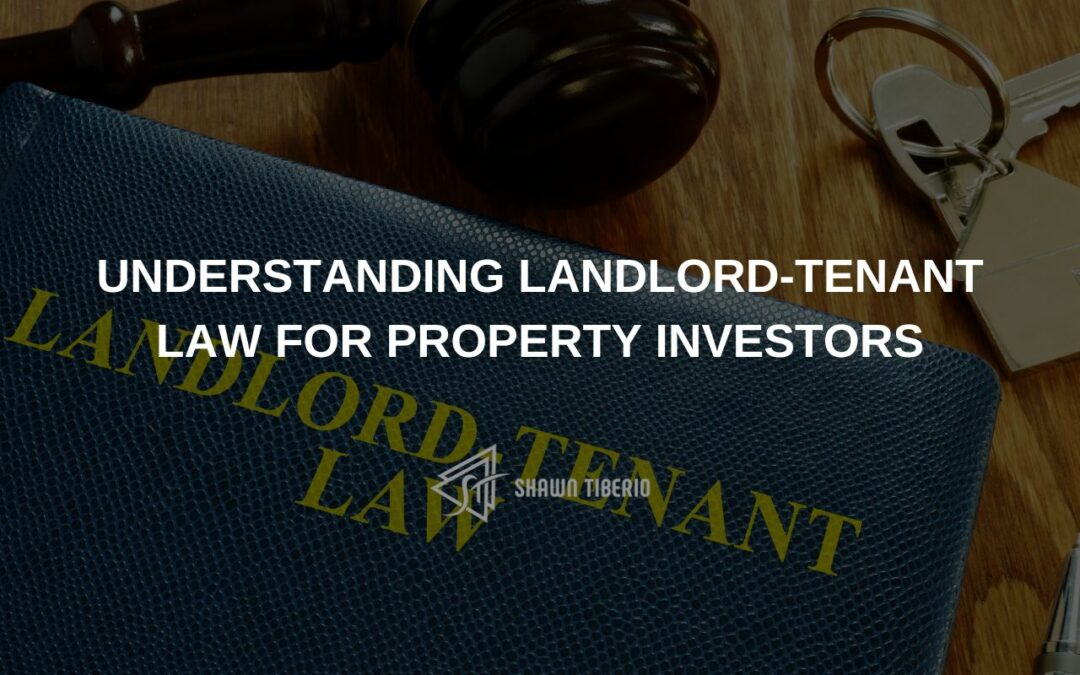As a real estate investor, navigating the complex landscape of compliance can feel like trying to untangle a web of regulations. With each step, you must carefully maneuver through the intricacies of anti-money laundering laws, fair housing regulations, SEC requirements, GDPR, tax codes, and environmental standards.
It’s a daunting task, but ensuring your compliance is essential for the success and longevity of your investments. So, how can you ensure that you’re on the right track and avoid potential pitfalls?
Let’s explore some crucial compliance tips that every real estate investor should know.
Key Takeaways
- Familiarize yourself with legal requirements governing property transactions, including zoning and land use regulations, building codes, fair housing laws, and environmental regulations.
- Implement robust compliance risk management strategies to address potential compliance risks.
- Conduct thorough due diligence on clients and understand the sources of funds to detect and prevent illicit financial activities within property transactions.
- Comply with regulations prohibiting discrimination in housing, understand fair housing act exemptions, and provide reasonable accommodations and modifications for individuals with disabilities to maintain fair housing act compliance.
Regulatory Compliance Overview
To ensure compliance with real estate regulations, investors must thoroughly familiarize themselves with the legal requirements governing property transactions. Regulatory compliance challenges are inherent in the real estate industry, and it’s crucial to implement robust compliance risk management strategies to navigate these complexities effectively.
Regulatory compliance challenges in real estate encompass a wide range of areas, including zoning and land use regulations, building codes, fair housing laws, environmental regulations, and disclosure requirements. Each of these areas presents unique compliance risks that investors must address to avoid potential legal and financial consequences. Understanding and adhering to these regulations is essential for maintaining the integrity of property transactions and safeguarding against compliance violations.
Compliance risk management involves the proactive identification, assessment, and mitigation of potential compliance risks. This process requires investors to conduct thorough due diligence when evaluating properties, ensuring that all regulatory requirements are met before proceeding with transactions. Additionally, maintaining accurate and complete documentation of compliance efforts is essential for demonstrating adherence to regulations in the event of an audit or dispute.
Incorporating compliance risk management into the investment process not only mitigates the risk of non-compliance but also enhances the overall credibility and reputation of real estate investors. By prioritizing regulatory compliance, investors can instill confidence in stakeholders, minimize legal exposure, and foster a culture of ethical and responsible property investment practices.
Understanding Anti-Money Laundering (AML)
Understanding Anti-Money Laundering (AML) regulations is essential for real estate investors to detect and prevent illicit financial activities within property transactions. AML regulations are designed to combat money laundering and the financing of terrorism by imposing obligations on real estate professionals to implement risk assessment strategies. These regulations require real estate investors to conduct due diligence on their clients, understand the sources of funds, and report any suspicious transactions to the relevant authorities.
To comply with AML regulations, real estate investors should establish robust risk assessment strategies that encompass customer due diligence, ongoing monitoring, and the implementation of internal controls. Customer due diligence involves verifying the identity of clients, assessing the nature of their business, and understanding the ownership and control structure.
Ongoing monitoring requires real estate investors to keep records of transactions, monitor the business relationship with clients, and ensure that the transactions are consistent with their knowledge of the client and their risk profile. Implementing internal controls involves appointing a compliance officer, providing training to employees, and conducting independent audits to ensure compliance with AML regulations.
Fair Housing Act Compliance
When ensuring compliance with the Fair Housing Act, real estate investors must diligently adhere to the regulations that prohibit discrimination in housing based on race, color, religion, sex, national origin, familial status, or disability. Fair housing act exemptions are essential to understand. Certain exemptions may apply to some owner-occupied buildings with no more than four units, single-family housing sold or rented without the use of a real estate agent, and housing operated by organizations and private clubs that limit occupancy to members. It’s crucial to familiarize yourself with these exemptions to ensure full compliance with the law.
Additionally, fair housing act advertising restrictions must be strictly followed. Advertising should never contain any indication of preference, limitation, or discrimination based on race, color, religion, sex, disability, familial status, or national origin. This includes not only written statements but also visual elements in advertisements. It’s important to ensure that all advertising materials, whether in print or online, comply with these restrictions.
Furthermore, real estate investors should be aware that the Fair Housing Act requires reasonable accommodations and modifications for individuals with disabilities. This means making necessary changes to rules, policies, practices, or services to afford people with disabilities an equal opportunity to use and enjoy a dwelling. Understanding and implementing these requirements is crucial to maintaining Fair Housing Act compliance.
SEC Regulations for Real Estate Syndications
Incorporating the Fair Housing Act compliance framework into your real estate investment strategy requires navigating the regulatory landscape governed by the Securities and Exchange Commission (SEC). The SEC regulations are in place to ensure that investors are provided with full and fair disclosure of all material information concerning the investment opportunity. This includes detailed information about the investment structure, risks involved, and the financial condition of the real estate syndication.
Regulatory reporting is a critical aspect of complying with SEC regulations for real estate syndications. As a real estate investor, you are required to adhere to specific reporting requirements. This may include filing Form D with the SEC within a certain timeframe after the offering has commenced. Form D provides essential details about the securities being offered, the parties involved, and the duration of the offering. Ongoing reporting obligations may also be necessary to ensure ongoing compliance with SEC regulations.
When structuring real estate syndications, it is crucial to design investment structures that comply with SEC regulations. This involves careful consideration of the offering documents, subscription agreements, and the overall investment framework. Each investment structure must be meticulously crafted to align with the regulatory requirements set forth by the SEC. This ensures that investors are provided with all necessary information to make informed decisions.
Navigating the SEC regulations for real estate syndications demands meticulous attention to detail and a comprehensive understanding of the reporting and investment structure requirements. By diligently adhering to these regulations, you can mitigate risks and ensure compliance in your real estate investment endeavors.
GDPR and Data Privacy Compliance
To ensure compliance with GDPR and data privacy regulations, real estate investors must understand the basics of GDPR, including its data protection requirements.
Implementing best practices for compliance is crucial in safeguarding personal data and avoiding potential legal repercussions.
GDPR Basics
Understanding the GDPR basics is essential for real estate investors to ensure compliance with data privacy regulations. The GDPR impact on real estate investment activities is significant, and it is crucial to prioritize data security to avoid penalties and maintain trust with clients and partners. Below is a table outlining key GDPR basics that real estate investors should be aware of:
| GDPR Basics | Description |
| Data Subject Rights | Individuals have the right to access, rectify, and erase their personal data. |
| Lawful Basis | Data processing must have a lawful basis, such as consent or legitimate interest. |
| Data Protection | Personal data must be processed securely, including protection against unauthorized access. |
| Data Transfers | Transfers of personal data outside the EU must meet specific GDPR requirements. |
| Data Breach Notification | Data breaches must be reported to the supervisory authority within 72 hours of becoming aware of the breach. |
Data Protection Requirements
Implementing data protection requirements is crucial to ensure GDPR and data privacy compliance in real estate investment activities. This includes safeguarding sensitive information, preventing data breaches, and adhering to data protection regulations.
To achieve this, it is important to securely store and process all personal data, such as tenant information or client details. This can be done by implementing cybersecurity measures such as encryption and strong authentication protocols to protect data from unauthorized access.
Regularly updating security software and conducting vulnerability assessments is also essential to identify and address any potential weaknesses in your systems. This helps in maintaining the security of the data.
Additionally, establishing clear data retention and disposal policies is necessary to effectively manage the data lifecycle. By doing so, you can ensure that data is retained for the required period of time and disposed of in a secure manner when it is no longer needed.
Compliance Best Practices
When ensuring compliance with GDPR and data privacy regulations in your real estate investment activities, it’s essential to establish robust best practices that prioritize the protection of personal data.
Implement comprehensive compliance training for all staff members involved in handling personal data to ensure a clear understanding of GDPR requirements. Regularly update the training to reflect any changes in regulations.
Additionally, integrate risk management into your compliance best practices by conducting thorough assessments of data processing activities, identifying potential risks, and implementing measures to mitigate them.
Establish clear procedures for handling data breaches to ensure swift and appropriate responses.
Tax Code Compliance for Real Estate Investors
Ensure that your real estate investments adhere to the tax code by staying informed about relevant regulations and seeking professional guidance when necessary. Tax code compliance is crucial for real estate investors to maximize tax deductions and manage depreciation schedules effectively. Here are some key considerations for tax code compliance:
| Tax Deduction | Depreciation Schedules |
| Mortgage Interest | Straight-Line Depreciation |
| Property Taxes | Accelerated Depreciation |
| Operating Expenses | Cost Segregation |
Maximizing tax deductions involves understanding which expenses are deductible, such as mortgage interest, property taxes, and operating expenses. By keeping detailed records of these expenses, you can ensure compliance with the tax code while maximizing your deductions.
Depreciation schedules play a significant role in tax code compliance for real estate investors. Understanding the different methods of depreciation, such as straight-line depreciation and accelerated depreciation, is essential for accurately reporting and managing depreciation expenses.
To ensure compliance with the tax code, it is advisable to work with tax professionals who specialize in real estate investments. They can provide valuable guidance on navigating complex tax regulations, maximizing deductions, and optimizing depreciation schedules to minimize tax liabilities while staying compliant.
Environmental Regulations in Real Estate
When investing in real estate, it’s crucial to be aware of environmental regulations that govern hazardous waste disposal and soil and water quality. Understanding these regulations is essential to ensure compliance and avoid potential liabilities.
As a real estate investor, staying informed about environmental regulations will help you make well-informed decisions and protect your investments.
Hazardous Waste Disposal
To comply with environmental regulations in real estate, it’s essential for investors to properly manage hazardous waste disposal. When dealing with hazardous waste, it’s crucial to adhere to waste management guidelines and regulations to minimize the environmental impact. Here are three key points to consider:
- Classification: Ensure the proper classification of hazardous waste based on its characteristics, such as ignitability, corrosivity, reactivity, and toxicity, as defined by regulatory authorities.
- Storage and Handling: Implement appropriate storage and handling procedures for hazardous waste to prevent leaks, spills, or contamination of soil and water sources.
- Disposal Methods: Utilize approved disposal methods for hazardous waste, including recycling, treatment, or secure landfill disposal, in accordance with environmental impact assessments and regulatory requirements.
Adhering to these measures is vital for real estate investors to mitigate the environmental risks associated with hazardous waste disposal.
Soil and Water Quality
Improper management of soil and water quality in real estate can lead to significant environmental repercussions and regulatory non-compliance. Soil testing is crucial to assess the presence of contaminants such as heavy metals, pesticides, or petroleum hydrocarbons. Regular soil testing helps identify potential issues early on, allowing for prompt remediation and preventing further contamination.
It’s essential to implement contamination prevention measures such as proper waste disposal, spill prevention, and soil erosion control to safeguard water quality. Additionally, understanding the local regulations regarding soil and water quality is fundamental for real estate investors to ensure compliance.
Compliance Training for Real Estate Teams
Real estate teams must undergo comprehensive compliance training to ensure adherence to all regulations and standards governing their industry. This training is crucial for maintaining ethical conduct, minimizing legal risks, and upholding the reputation of the business.
Here are three key areas to focus on during compliance training:
- Team Communication: Emphasize the importance of clear and transparent communication within the real estate team. Train members to effectively document all communications with clients, contractors, and other stakeholders. Encourage the use of standardized forms and templates for contracts, agreements, and disclosures to ensure consistency and accuracy in communication. Stress the significance of timely and accurate information sharing to prevent misunderstandings and disputes.
- Risk Management: Provide in-depth training on identifying, assessing, and mitigating risks in real estate transactions. Educate team members about potential legal and financial risks associated with various aspects of the business, such as property management, sales transactions, and contract negotiations. Offer guidance on implementing risk management protocols and procedures to safeguard the interests of clients and the business.
- Regulatory Compliance: Cover all relevant laws, regulations, and industry standards that real estate professionals must adhere to. This includes fair housing laws, anti-discrimination regulations, data privacy requirements, and licensing obligations. Ensure that team members understand their responsibilities in complying with these regulations and the potential consequences of non-compliance.
Frequently Asked Questions
How Can Real Estate Investors Ensure Compliance With Local Zoning and Land Use Regulations?
To ensure compliance with local zoning and land use regulations, real estate investors should obtain the necessary local permits and thoroughly assess the environmental impact of their projects.
By obtaining the required permits and conducting comprehensive environmental impact assessments, you can ensure that your real estate ventures adhere to local regulations and minimize any negative impact on the environment.
This proactive approach can help you avoid potential compliance issues down the line.
What Are the Implications of Compliance With the Foreign Investment in Real Property Tax Act (Firpta) for International Real Estate Investors?
When it comes to international real estate investing, understanding the implications of FIRPTA is crucial.
Compliance considerations under FIRPTA can have significant financial implications for international investors. It’s important to be aware of the tax implications and potential withholding requirements.
Failing to comply with FIRPTA regulations can result in penalties and additional costs. Therefore, it’s essential for international investors to thoroughly understand and adhere to FIRPTA guidelines to avoid any negative consequences.
Are There Any Specific Compliance Considerations for Real Estate Investors Using Cryptocurrency or Blockchain Technology?
When using cryptocurrency or blockchain technology as a real estate investor, you must be aware of cryptocurrency regulations and blockchain technology compliance. It’s crucial to understand the legal and regulatory framework surrounding cryptocurrency transactions and blockchain technology in real estate investments. Compliance with anti-money laundering (AML) and know your customer (KYC) regulations is essential.
Additionally, staying informed about any updates or changes in cryptocurrency and blockchain regulations is important to ensure compliance.
How Can Real Estate Investors Ensure Compliance With the Americans With Disabilities Act (Ada) When Developing or Managing Properties?
To ensure compliance with the Americans with Disabilities Act (ADA) when developing or managing properties, real estate investors should prioritize ADA accommodations and property modifications. This involves making sure that all properties are accessible to individuals with disabilities, including appropriate parking spaces, ramps, and restroom facilities.
Conducting regular ADA compliance assessments and staying informed about any updates to ADA regulations is also crucial in maintaining compliance with the law.
What Are the Compliance Requirements for Real Estate Investors Participating in Opportunity Zone Investments?
When investing in opportunity zones, it’s crucial to understand the compliance requirements and tax implications.
Opportunity zone investments offer tax benefits but come with specific criteria, such as investing in designated low-income areas.
To ensure compliance, you must adhere to the regulations outlined by the opportunity zone program, including the substantial improvement test and the 90% asset test.
Failing to meet these requirements could result in losing the tax benefits associated with the investment.
Final Thoughts
You’ve learned essential compliance tips for real estate investors, but you might be thinking, ‘It’s too much to keep track of.’
Remember, staying compliant not only protects you from legal trouble but also ensures fair and ethical practices in the real estate industry.
By prioritizing compliance, you contribute to a just and trustworthy real estate market for everyone involved.
Stay informed, stay compliant, and make a positive impact in the industry.











